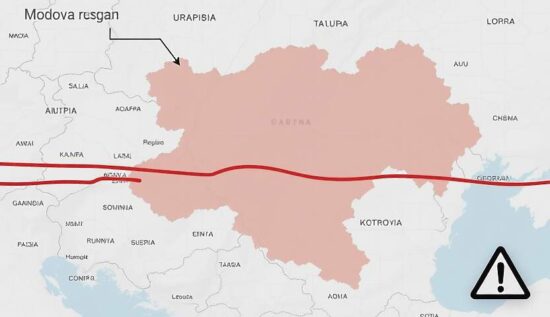Moldova’s Prime Minister Dorin Recean expressed discontent with Russia’s plans to resume gas deliveries to Transnistria, as reported by Sputnik Moldova. He described this as a “Kremlin plan” to destabilize the entire Republic of Moldova.
“It is already clear that Gazprom will deliver smaller amounts of gas to Transnistria – enough for the left bank, but not enough to enable the right bank to have access to cheaper electricity” Recean said.
On Thursday, Kremlin Spokesman Dmitri Peskov stated that Russia is ready to buy gas for Transnistria, but Chișinău must ensure the logistical arrangements and contract fulfillment. He added, “Logistical measures are necessary to secure gas deliveries and contracts through Moldova. So far, we have not heard any statements about readiness in this regard.”
Moldova’s government had already declared a 60-day state of emergency on December 16, in response to a looming humanitarian crisis due to the Russian gas transit stoppage via Ukraine, set to begin on January 1. In early December, Recean warned that a stop in Russian gas deliveries to Transnistria, which accounts for around 80% of Moldova’s electricity needs, could lead not only to price hikes but also to supply shortages, and even a humanitarian catastrophe in the winter.
At the end of December, Gazprom announced that it would stop gas deliveries to Moldova due to outstanding payments from Moldovagaz, with the Russian side estimating the debt at $709 million, while Chișinău had offered only $8.6 million. The background for these tensions dates back to the fall of 2021, when Gazprom and Moldovagaz signed a five-year contract that stipulates the repayment of Moldova’s debt.
However, at the end of November, Recean stated that Moldova would not pay the “non-existent” debt, which has been deemed invalid by international audits. Recean also emphasized that Moldova has diversified its gas sources to reduce its dependence on Gazprom, but did not provide further details on these measures.





